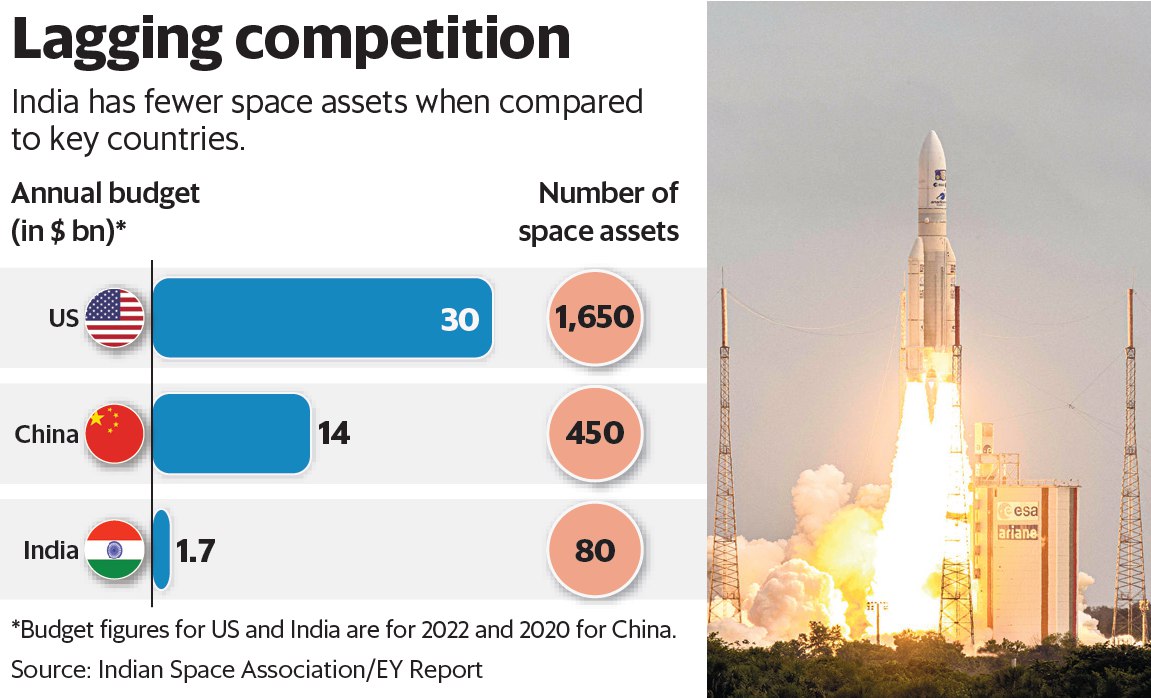ForumIAS announcing GS Foundation Program for UPSC CSE 2025-26 from 27th May. Click Here for more information.
Contents
Source: The post is based on the article “Will policy power India’s race to space?” published in Livemint on 25th April 2023
What is the News?
The Union Cabinet has approved the Indian Space Policy, 2023.
Where does India’s space programme stand?

Ever since India launched its first sounding rocket in 1963, its space programme has come a long way.
ISRO has undertaken more than 120 spacecraft missions, and 90-odd satellite launch missions and has put over 385 foreign satellites in orbit.
Its two satellite launchers, Polar Satellite Launch Vehicle (PSLV) and Geosynchronous Satellite Launch Vehicle (GSLV) are considered to be reliable low-cost launch options for the world.
However, still, India’s share in the $440 billion global market is just 2%. Its space assets at 80 are also far below the US’ 1,650 and China’s over 450 satellites in orbit.
What does the space policy seek to achieve?
In 2020, the government liberalized the space sector and enabled large-scale private sector participation in the country’s space programme which until then was the prerogative of ISRO.
These reforms ensured that over 100 new companies entered the space sector. Some of them, such as Skyroot Aerospace, Dhruva Space, Digantara, Pixxel and Bellatrix Aerospace, have already tasted success.
The updated space policy seeks to provide regulatory certainty to achieve this vision of creating a thriving space ecosystem.
What will be ISRO’s role as per space policy?
ISRO will focus primarily on research and development of new space technologies and applications, and for expanding the human understanding of outer space.
India’s space programme will transition from ISRO-dominated to ISRO-enabled.
What do the private players say on space policy?
The policy is clear about the collaboration between international entities and the private sector on not only the commercialisation of products and services but also on the development of next-generation technologies.
The policy is also flexible. It permits case-by-case authorization or approval from IN-SPACe to engage in space activity even when it doesn’t align with the policy.
However, rules around spectrum allocation, foreign direct investment, and orbital slot allocation are not clearly stated in the policy.




